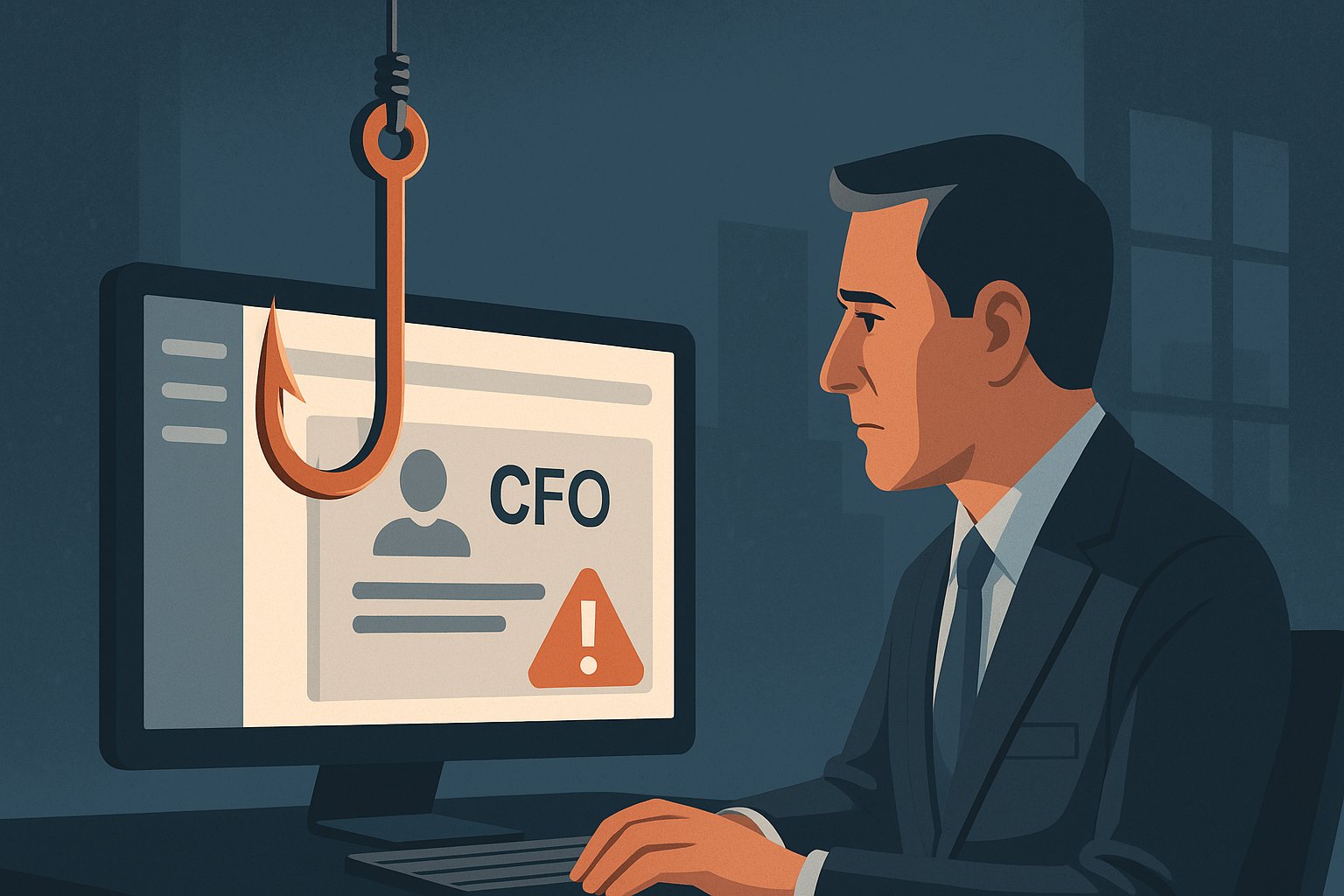In a significant alert to financial executives, cybersecurity researchers have identified a spear-phishing campaign targeting Chief Financial Officers (CFOs) across various sectors, including banking, energy, and investment firms. This sophisticated threat utilizes a legitimate remote access tool, Netbird, to circumvent traditional security measures. The analysis by Trellix’s Srini Seethapathy underscores the campaign’s complexity, stating that it is designed to install this tool onto the victims’ computers without detection. More details can be found in the Trellix blog post here.
The campaign initially manifests through a phishing email masquerading as a recruitment message from Rothschild & Co., claiming to offer a ‘strategic opportunity’. The email entices the recipients into clicking a fraudulent PDF attachment that redirects them to a nefarious Firebase app-hosted URL. Notably, the URL’s redirection mechanism employs a CAPTCHA verification, a tactic that aims to bypass existing phishing detection systems.
Once the CAPTCHA is solved, the victims are led to download an encrypted ZIP archive containing a Visual Basic Script (VBScript). This VBScript is integral to the attack; it retrieves additional malicious scripts from an external server. Ultimately, it installs both NetBird and OpenSSH on the compromised machine, establishing a hidden user account, enabling remote desktop access, and ensuring that these tools persist even after system reboots.
The impact of this campaign highlights a disturbing trend where cybercriminals rely increasingly on legitimate software to maintain stealthy access to networks. As noted by Seethapathy, this spear-phishing attack represents an evolving challenge in cybersecurity, demonstrating highly targeted and sophisticated social engineering tactics designed to evade traditional defenses. Furthermore, Trellix researchers noted persistent URLs associated with similar scripts, indicating the potential longevity and resilience of this malicious campaign.
Various other phishing activities have also come to light, showcasing the ongoing battle against cybercrime. These include attacks that utilize trusted domains for email impersonation and employ Google Apps Script to host deceptive phishing pages. Microsoft also documented the rise of Phishing-as-a-Service (PhaaS) platforms that automate these tactics, enhancing accessibility for less technically savvy criminals. Research highlights the necessity of user training to combat these deceptive tactics, suggesting that raising awareness about common social engineering schemes is paramount to safeguarding sensitive data.

